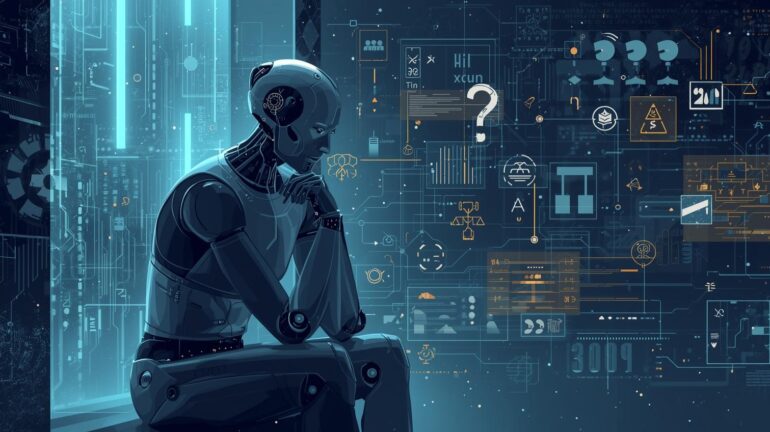
Artificial Intelligence (AI) has moved from science fiction into daily life. Algorithms recommend what we watch, determine credit approvals, guide medical diagnoses, and even power autonomous vehicles. As AI systems take on greater roles in decision-making, a profound question arises: can machines make moral choices? The field of AI ethics explores this question, examining the limits of machine reasoning, the responsibilities of developers, and the broader implications for society.
At the heart of the issue is the fact that AI systems are not inherently moral agents. They do not possess consciousness, empathy, or values in the way humans do. Instead, they operate on data and instructions provided by their creators. When an AI model produces a biased hiring decision or a flawed medical recommendation, the root cause lies not in malicious intent but in the design of its algorithms and the data it was trained on. Yet the consequences can be just as serious as those caused by a human’s poor judgment.
One of the most debated examples is autonomous vehicles. Imagine a self-driving car faced with a split-second decision: swerve to avoid a pedestrian and risk the passengers’ lives, or protect passengers while endangering others on the road. These “trolley problem” scenarios, once confined to philosophy classrooms, are now practical engineering challenges. AI can calculate probabilities and outcomes, but determining the morally right decision is far more complex. Should it prioritize the greatest number of lives saved? The safety of the passengers who purchased the vehicle? Or the protection of the most vulnerable, such as children or the elderly? These questions reveal the ethical dilemmas embedded in machine decision-making.
The issue of bias and fairness further complicates the picture. AI systems learn from data, and data often reflects societal inequalities. If historical hiring data shows discrimination against women or minorities, an AI recruitment system may unintentionally replicate those biases. Similarly, facial recognition technologies have been found to misidentify individuals with darker skin tones at higher rates, raising concerns about racial discrimination in law enforcement. In such cases, machines are not making moral choices but amplifying existing biases a dangerous outcome unless carefully monitored.
Accountability is another critical concern. If an AI-powered medical tool misdiagnoses a patient, who is responsible the software developer, the hospital, or the machine itself? Unlike human professionals, machines cannot be held morally or legally accountable. This creates a gap in responsibility that must be addressed through regulation, governance, and ethical design principles. Without clear accountability, the risk of harm increases as reliance on AI grows.
To address these challenges, governments, businesses, and researchers are working on frameworks for ethical AI. These include principles such as transparency, fairness, accountability, and explainability. For example, explainable AI seeks to create systems that can clarify how decisions are made, allowing humans to understand and challenge machine reasoning. Similarly, privacy safeguards ensure that AI does not misuse personal data, while ethical audits can detect and correct bias in algorithms before deployment.
Yet, the debate goes deeper than rules and frameworks. Some ethicists argue that machines can never truly make moral choices, because morality requires intent, empathy, and human context qualities AI lacks. Others suggest that while AI cannot “be moral,” it can be designed to align with human values by encoding ethical principles into decision-making systems. For instance, AI used in healthcare could be trained to prioritize patient safety and well-being above all else, approximating ethical reasoning without experiencing it.
The UAE and other innovation-driven nations are at the forefront of these discussions. With AI integrated into smart cities, healthcare, and government services, ethical considerations are critical. Policies must balance innovation with safeguards to ensure trust, equity, and inclusivity. This reflects a broader global reality: as AI shapes the future, its ethical foundation will determine whether it benefits humanity or deepens social divides.
Ultimately, machines themselves may never “choose” in the way humans do. They are tools powerful, intelligent, and increasingly autonomous but still dependent on the intentions and oversight of their creators. The real moral responsibility lies not in the algorithms but in the humans who design, train, and deploy them. Ensuring that AI serves the common good requires humility, foresight, and a commitment to ethics that matches the pace of technological advancement.
AI may never possess morality, but it will continue to challenge humans to confront moral questions more urgently than ever before. As machines grow smarter, it is our responsibility to ensure they remain aligned with human values. The future of AI ethics is less about whether machines can make moral choices and more about whether we, as a society, can make the right choices about machines.